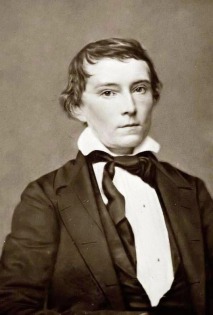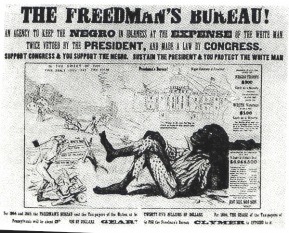Reconstruction Controversy

Alexander Stephens, VP of the Confederacy
Johnson's Reconstruction Plan was put into action when Congress was not in session, and while state constitutions were drawn up, many former Confederate leaders came personally to the President to beg for pardon.
- Granted pardon to many high-ranking officials.
June, 1865- Johnson Revokes Land
- Freedmen's Bureau gave land (and mules) to many Freedmen
- Johnson revokes land
- Land given back to former Confederate owners
- Johnson revokes land
- Land given back to former Confederate owners
Dec. 1865- State governments established

Black Codes limited black's rights
- "Black Codes" limited black people's social, economic, and political rights.
February, 1866- Extension of Freedmen's Bureau

Democrats pleased with veto of Freedmen's Bureau
- Congress passed bill to extend life of Freedmen's Bureau
- Johnson vetoed bill
- Democrats thrilled with veto and serenade him at White House.
- Johnson gave short speech attacking Radicals and giving names.
- Johnson vetoed bill
- Democrats thrilled with veto and serenade him at White House.
- Johnson gave short speech attacking Radicals and giving names.
Johnson and Congress Clash

Radicals gained power in Congress
- Plan too lenient towards whites and didn't protect black's rights.
- Radicals and Congress appointed joint committee to draw up alternate Reconstruction plan.
1866- Civil Rights Bill
Although advised by many members of his Cabinet to sign bill, Johnson vetoed it.
- Believed bill "infringed" on states' rights.
- Argued it discriminated against whites by giving protection to blacks that whites didn't have.
- Johnson's veto convinced Moderates to join with Radicals.
- Thought Johnson was going wrong way about Reconstruction.
- Congress overrode veto and passed bill.
